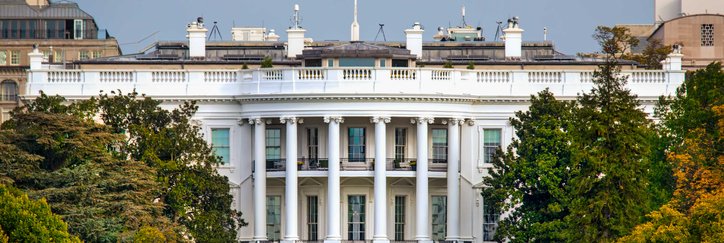The White House Seeks to Enact Policy Targeting Crypto. Here's What We Know.
KEY POINTS
- The U.S. government is conducting a study to inform future policy decisions regarding the energy consumption and carbon footprint of cryptocurrency.
- The proof-of-work model that many blockchains use is very energy intensive, and could be completely replaced by the proof-of-stake model to conserve energy costs.
The White House begins a study to produce crypto policies. Is the government about to crack down on crypto?
In today's cryptocurrency news, the Biden administration is conducting research into the energy consumption and carbon emissions of cryptocurrency operations. This research will be used to inform the administration's policy decisions regarding the brave new world of cryptocurrency. What does the White House's interest in cryptocurrency regulations mean for you and your crypto?
Crypto requires a lot of energy
Ordinary crypto investors may not realize how much energy cryptocurrency processes use, as many simply purchase pre-mined coins on exchanges. Cryptocurrency uses an exorbitant amount of energy, however. Bitcoin mining alone is said to account for more total energy consumption every year than the entire country of Argentina, and emits 65 megatons of carbon dioxide in the same amount of time. When we think about how many other cryptocurrency networks are out there, eating up energy along with big networks like Bitcoin and Ethereum, it can be easy to see why the government would want to look into crypto's energy consumption and emissions and find a way to reduce them.
Governmental crypto policies
The U.S. government has barely begun to get a handle on the emerging world of digital currency and blockchain technology, but some early ideas around cryptocurrency energy consumption reduction focus on the staking models that many networks use to ensure commitment from users. There are advantages to both of the most popular staking models, with the proof-of-stake model using less energy, and the proof-of-work model being more secure overall. With blockchain networks such as Ethereum making the switch to the proof-of-stake model in order to reduce energy costs, the government may release a policy requiring blockchain networks to utilize this model going forward. If this happens, blockchain networks that refuse to cooperate with this demand could choose to run to another country where their operations are not restricted by this kind of policy.
The bottom line
At this point, the Biden administration is only beginning to investigate cryptocurrency's energy usage and carbon emissions, and no policies have been produced yet. If the government deems the energy consumption of the proof-of-work model to be too energy intensive, the White House may release a policy that favors the proof-of-stake model instead. While this would reduce energy consumption, certain blockchains may not be willing to lessen their security for it. If this is the case, their operations could be restricted in the U.S. and they may choose to set up shop in another country. The cryptocurrency market is likely to be affected by any new policies the White House releases regarding this new field, but the full effects remain to be seen.
Curious how your crypto earnings are already affected by the government? Check out our guide to understanding cryptocurrency taxes!
Our Research Expert





